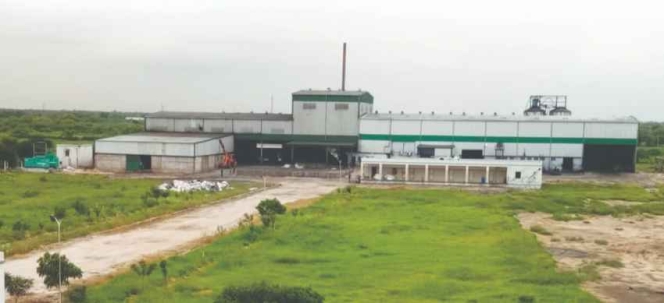

Can you tell us about the background of Radhe Renewable Energy and what was the idea behind the development of the 100 MTPD single reactor continuous pyrolysis plant?
During our travels around India 25 years ago, we used to find farmers burning the agricultural stubble and waste to clear the fields for the next sowing. This used to cause a lot of pollution. With our understanding of hydrocarbons, we decided to create resource out of this waste. We started Radhe Renewable Energy with the idea of creating green fuels from many types of wastes that caused pollution and were a big disposal issue then. Our initial projects were to convert agricultural waste into valuable briquettes which replaced conventional fossil fuels like coal and furnace oil.
Being a hardcore and focused waste-to-energy company, we understood the chemistry of biomass and the future potential of green fuel from biomass. We persisted to find ways to convert rural agricultural waste into wealth with green environment and for sustainable growth of rural India. Our creative and dedicated team moved forward to develop biomass gasification technology to replace fossil liquid fuel in process industries like ceramics, chemical and steel industries with the use of solid biomass briquettes. We were the first company to develop and manufacture industrial scale size biomass and coal gasification technology and replace complete liquid fuel from ceramic industries near Rajkot, India. This reduced the import dependency of coal as fuel. Our team understands the mindset of process industries. We continuously strive to develop technologies that are not only cutting edge but which also create value for the capital invested. We understand that the lifecycle cost is as important as the acquisition cost in India and the other Asian markets. Last but not least, we are completely dedicated to operational safety and sustainable solutions for our clients.
Radhe Renewable Energy has supplied more than 500 biomass and coal gasification technology plants to the various process industries with successful track record in synchronising clients’ processes with gasification. Over this period, our team has gained considerable experience working with big corporates of India (process houses like TATA chemical, H&R Johnson tiles, Somani, Vedanta group, Mahindra, Steel Ispat etc.). We also gained the experience of major process of steel, drying, fertilizer, petrochemical, food, pharma, rubber and mineral industries.
It was in the year 2006 that we started working on a project to convert waste tyres and municipal solid wastes into valuable products. We were the first amongst many who saw the potential of converting this waste into green fuels at that time. We already had lots of experience to convert biomass into char to get charcoal and gas with fast pyrolysis.
What kept you investing in and developing the continuous pyrolysis technology when everyone else was selling thousands of cheaper batch type plants in India?
Equipped with the vast experience that our team had of all process industries, we knew that we wanted to do a revolutionary work in this tyre pyrolysis field too. Hydrocarbon is a big subject. You must handle them properly with full safety, environmental concern, and efficient and stable operation. You cannot think for cheaper batch type technology. We just did not want to do what other small companies were involved in – basically, copying environmentally non-compliant batch type plants from China and selling it in India. The batch type plants were very unsafe to operate, leading to many fires and explosions. The smell and the gases released have affected thousands of people in the last 10 years of their operations across Indian towns and cities.
We chose to take the higher road. We decided to develop and build the best technology plant that India will be proud of. It was an uphill task with huge work and investments involved. It took about three years for a lab scale trial plant to come up. We started scaling up later. It has taken us more than seven years to reach our patented full commercial scale 100 TPD single reactor continuous waste tyre pyrolysis plant.
We can proudly boast that we could perhaps be the only manufacturer to have the largest single reactor 100 TPD continuous plant running successfully for the last nine years. It is sometimes hard to believe that an Indian company can develop and deliver a global technology that can challenge the world in price and performance. The world is amazed with what they see when they understand our technology and offerings. Today, we can offer plants meeting European standards and compliances at about one-fourth of the cost of the European manufacturers. None of them have a 100 TPD show plant operating for as long as we have.
 How was the journey in developing indigenous technology for upgrading Recovered Carbon Black (rCB)?
How was the journey in developing indigenous technology for upgrading Recovered Carbon Black (rCB)?
Since the last 25 years, we been working with hydrocarbons, and we know the importance of carbon in daily life. Conventional world is producing carbon black from firing of furnace oil with highly polluting industrial process. At present, the world has few options in making carbon black. These processes consume lots of natural resources and are polluting in nature. Carbon is backbone for many products like rubber, tyre, plastics, Bakelite, minerals, graphite, metal etc. With waste tyre pyrolysis process, we are deriving carbon free without use of any natural resources and without any polluting process. Our continuous pyrolysis process is completely environmentally friendly with almost zero discharge. This process also generates surplus energy for other applications. We understood the importance in upgrading the carbon char generated during the process and worked on it for the more than three years. We were finally able to develop the process to upgrade the rCB to commercial grades successfully. Our rCB is a much sought-after derivative in the Indian market and is being exported across the globe.
How do you evaluate the tyre industry in India? What makes you bet on the carbon black business?
The Indian tyre industry is on a phenomenal growth trajectory and is now very receptive to ideas on sustainability and reuse of recycled materials. We are in active dialogue with many rubber and tyre companies for exploring opportunities to work together with regards to the production and usage of our rCB,
Silica is being aggressively adopted by the tyre industry as a reinforcement material due to tightening of the safety and environmental norms? How will this, according to you, pose a challenge for the rCB industry?
Silica is a useful ingredient of tyre and rubber, which is also found in rCB. As silica is extensively being adopted by the tyre industry, we feel our rCB is absolutely apt for the tyre industry. This will meet both their objectives together – sustainability and reinforcement.
Could you highlight the production capabilities?
Currently, we have 750-800 MT/month rCB production capacity. In the next two years, we will have 300 percent of this capacity in India and about 400 percent of this capacity in the rest of the world. Our brand is Hi-Green carbon black.

Could you talk about the markets the company taps? Are you looking to tap new markets?
We have now opened our doors to companies wanting to set up tyre pyrolysis plants with carbon upgradation systems. The response is overwhelming. We have inquiries coming from all over the world. Initially, people were sceptical if we really had done what we say. They are impressed when they visit our facility. We are now in active dialogue with at least 5-6 companies across Europe and the USA. The future looks very bright.
Do you think there is a need for further collaboration between CB producers and tyre companies?
Yes … definitely, this is a marriage that will last. Tyre companies will be able to complete the circular economy loop. It is a win-win for all.
What are your future plans?
To establish high capacity plants in highly aware European, US, UK and Australian markets and create an ecosystem for high quality tyre-derived oil and rCB. We have started the process to appoint channel partners in Europe and many other strategic markets. We will have our footprints in these markets in the next 24 months.
What are the challenges in the business?
Opportunities and challenges are two sides of the same coin. We always felt that most companies look at the path of least resistance and miss out on the major learning which leads to greatness.
We have built the technology on our own. We have had to invest into the development with our own resources. If we were in Europe or other first world countries, we would have had access to low-cost funding, especially for R&D.
The other challenges in India and other Asian markets are the ever-changing government norms. Quite often, we find that these environmental norms do not have any ground connect. The norms are often formed without proper evaluation of technology merits and guided by local sources. For example, waste tyres are still classified in the hazardous waste category. Strangely, coal and biomass does not classify as hazardous waste. We fail to understand the logic behind such norms. These matters hinder the growth of the right technologies.
Despite all these challenges, we have been able to make our mark in the country.We now look forward to setting our footprints across the globe. (TT)
- INDIAN TYRE INDUSTRY
- TYRE RETREADING
- BIS STANDARDS
- IS 15704
- ECE R109
- CIRCULAR ECONOMY
- MSME CHALLENGES
- AUTOMOTIVE REGULATION
- CARBON REDUCTION
- FREIGHT
- LOGISTICS
Retreading Hangs In Balance Over Regulatory Conundrum
- By Gaurav Nandi
- December 30, 2025
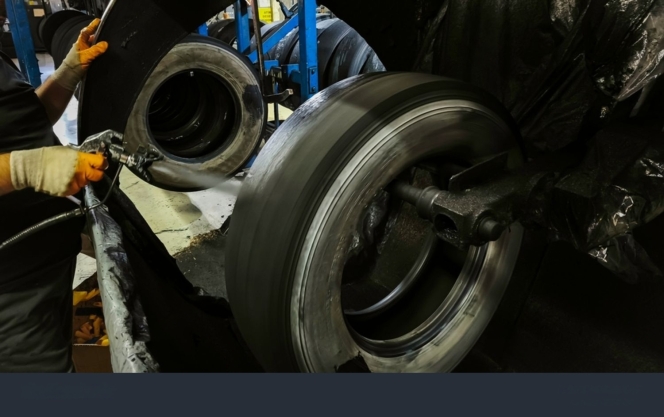
A population of over 1.4 billion people catapulting into the world’s third largest automobile market with four million trucks plying across a road network of 6.3 million kilometres supported by a USD 13.4 billion tyre market and a mining sector contributing around 2–2.5 percent of the country’s GDP demonstrate the strength of India’s automobile, freight and tyre sectors.
The story doesn’t end there as the Central Government adopts a strategic approach on reducing carbon emissions across these verticals, especially automobile and tyres, with targets such as the Net Zero Carbon Emissions by 2070, battery electric vehicles target by 2030, zero-emission truck corridors, Extended Producer Responsibility for the tyre sector; the list just goes on.
Amidst all such statistics and targets, a silent spectator remains the old and varied sector of tyre retreading. In a recent news story reported by Tyre Trends, the Indian Tyre Technical Advisory Committee (ITTAC) had made a proposal to Tyre Retreading Education Association (TREA) for mandating certain standards that will improve the quality of retreads. ITTAC has made recommendations to the BIS committee. TREA is part of the same committee. ITTAC and TREA are recommending different standards.
These standards included BIS retread standards, namely IS 15725, IS 15753, IS 15524 and IS 9168. The ITTAC had partially aligned Indian requirements with ECE R109, the European regulatory benchmark.
In a reply to the proposal, which was accessed by Tyre Trends, TREA urged the Indian Tyre Technical Advisory Committee to seek a deferment or non-applicability of BIS standard IS 15704:2018 for retreaded commercial vehicle tyres, warning that mandatory enforcement could cripple the sector.
In the letter, TREA argued that IS 15704:2018 is largely modelled on new tyre manufacturing norms and is technically unsuitable for retreading, which is a restoration and recycling process.
The standard mandates advanced laboratory tests such as spectrometer-based rubber analysis, endurance testing and compound uniformity checks, requirements that most retreading units, particularly small and medium enterprises, are not equipped to meet
The association highlighted that even large retreaders lack the infrastructure and skilled manpower needed for BIS-grade testing, while the sheer number of retreading units would make inspections and certifications operationally unmanageable for regulators.
TREA warned that compliance costs linked to machinery upgrades, audits and quality control could force 70–80 percent of units to shut down, leading to job losses, higher fleet operating costs and adverse environmental outcomes due to reduced recycling
Instead, TREA proposed that BIS prioritise retreading-specific standards such as IS 13531 and IS 15524, which focus on materials, process control, safety and quality consistency.
The body has also called for a phased transition roadmap, MSME support and industry training before any stricter norms are enforced, stressing that abrupt implementation would undermine the sector’s role in India’s circular economy.
The conundrum
India has a total of 36 administrative divisions comprising 28 states and 8 union territories. The tyre retreading sector has been continuously supporting circularity goals since the early 1970s across the world’s largest economy without getting mainstream recognition.
Even after five decades in service, the industry battles different bottlenecks including fragmentation, manpower shortage, tax pressures brought about by the recent GST revisions and now the implementation of such standards, just to name a few.
The sole practice that can simultaneously reduce carbon emissions from tyres and extend tyre life is assumed the nemesis of an ‘infamous and dangerous practice’ in some states of the country.
However, the industry has been drawing its techniques and quality parameters from the world’s oldest retreading economy, Europe.
“Big retreaders in India already have the necessary processes in place that conform to IS 15524 standards. However, as the standard is not yet mandated, we have voiced support for it because it is process-oriented and outlines how retreading should be carried out, including buffing and building procedures,” said TREA Chairman Karun Sanghi.
He added, “This standard focuses on how the work is done rather than imposing product-level testing that cannot be practically implemented. The current debate on IS 15704 stems from it being fundamentally incompatible. The standard includes requirements such as sidewall marking and destructive testing of retreaded tyres, which are impractical in a retreading environment where each tyre differs in brand, size, application and usage history,” he added.
Destructive testing, he argued, assumes uniform batch sizes. In retreading, where every casing is unique, testing even a single tyre would mean destroying finished products without yielding representative results. Applying such a framework would effectively require the destruction of every tyre in a batch, making compliance unviable.
“We have submitted our response to ITTAC and are awaiting feedback from the committee. We remain open to continued dialogue and will engage further once the committee responds to our submission,” said Sanghi.
According to him, a typical retreader processes about 300 tyres a month across multiple brands including MRF, JK Tyre, Apollo and Michelin and applications ranging from buses and trucks to mining vehicles. These casings vary widely in load cycles, operating conditions and duty patterns, often across several models from the same manufacturer.
The committee has cited European standard ECE R109, but Sanghi points to structural differences: “Europe is a global retreading hub where tyre manufacturers such as Michelin and Bridgestone dominate operations, collect their own tyres, retread them and return them to fleets, making batch-based destructive testing relevant. A similar model exists in US, where large tyre companies lead retreading and largely self-regulate without a single overarching standard. The Indian scenario is different, especially with a fragmented market.”
He stressed that the industry is not opposed to standards but to those that cannot be practically applied, warning that adopting European manufacturing-oriented norms without accounting for India’s market structure and operating realities would be counter-productive.
The debate is no longer about whether standards are needed but whether they are fit for purpose. Without accounting for India’s fragmented retreading ecosystem, enforcing impractical norms could dismantle a circular industry in the name of compliance.
TGL Season 2 Kicks Off With Hankook As Founding And Official Tire Partner
- By TT News
- December 29, 2025
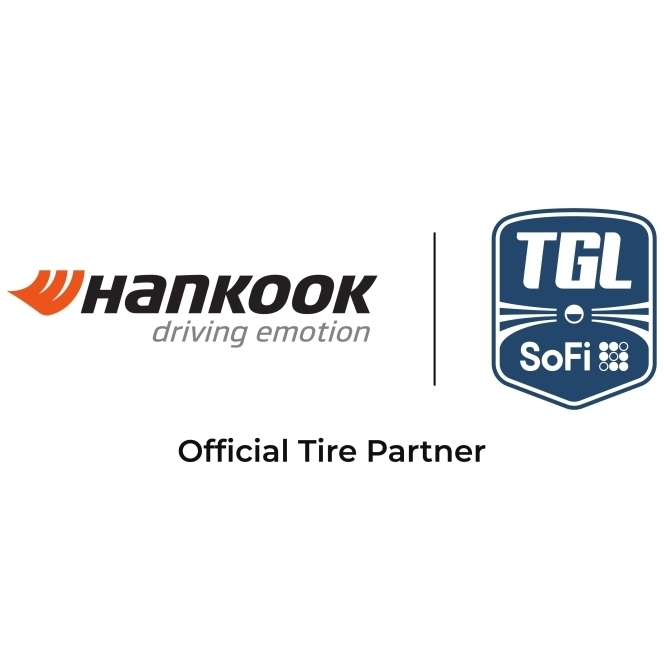
The second season of TGL Presented by SoFi, where Hankook Tire serves as the Founding and Official Tire Partner, commenced on 28 December 2025. This innovative league, a venture of TMRW Sports with backing from icons like Tiger Woods and Rory McIlroy, represents a strategic alignment for Hankook, uniting two entities driven by technological advancement. The partnership provides a global platform to reinforce Hankook's premium brand positioning across North America and worldwide through extensive visibility during broadcasts and at the state-of-the-art SoFi Center in Florida.
This unique venue embodies the league's fusion of sport and technology, featuring a massive simulator with a dedicated ScreenZone and a dynamic GreenZone. This area, equipped with a turntable and over 600 actuators, meticulously replicates real-world golf conditions indoors, creating an immersive arena experience. The competition itself is fast-paced and engaging, with teams of PGA TOUR players competing in Triples and Singles sessions over 15 holes. Innovative elements like the point-doubling ‘Hammer’, real-time strategy via ‘Hot Mic’ and a Shot Clock ensure a dynamic spectacle for fans.
The season opener presented a compelling narrative as a rematch of the inaugural finals, pitting the undefeated Atlanta Drive GC, featuring Justin Thomas and Patrick Cantlay, against a determined New York Golf Club squad led by Matt Fitzpatrick and Xander Schauffele. This match set the tone for an intensive season running through March, where six teams and 24 top golfers will compete. For Hankook, this partnership is more than signage; it is an active engagement with a global community, delivering a distinctive brand experience that bridges cutting-edge mobility and sport for enthusiasts everywhere.
Dunlop Secures CDP ‘A List’ Recognition For Climate Change And Water Security
- By TT News
- December 29, 2025
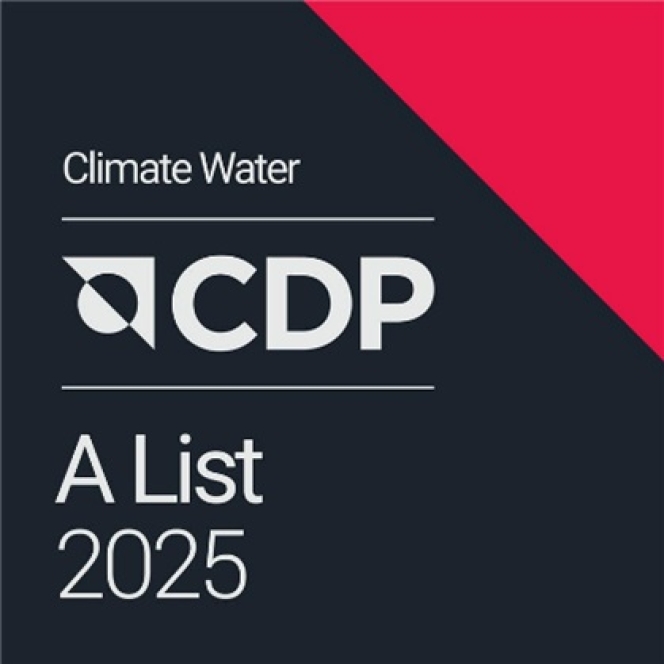
Dunlop (company name: Sumitomo Rubber Industries, Ltd.) has made its way to the annual A-List of CDP for climate change and water security. This premier designation, awarded for the first time to the company in the 2025 evaluation, recognises world-leading performance in transparency, risk management and environmental action. CDP’s annual assessment is a key benchmark for corporate sustainability across climate, water and forests.
This achievement stems from the Group’s integrated approach to material issues outlined in its corporate philosophy. It treats the interconnected challenges of climate change, biodiversity and the circular economy holistically, advancing concrete initiatives under its long-term ‘Driving Our Future’ sustainability policy.
On climate, the Group’s science-based emission reduction targets for 2030 are validated by the Science Based Targets initiative. Operational efforts include pioneering green hydrogen production at its Shirakawa Factory and developing tyres made entirely from sustainable materials by 2050. The company also works to reduce emissions across its supply chain, lowers tyre rolling resistance to improve vehicle fuel economy and extends product life through retreading.
For water security, the strategy is driven by localised risk assessments at global production sites. In seven facilities identified as high-risk, the goal is to achieve 100 percent wastewater recycling by 2050. Progress is already evident, with the company’s Thailand factory reaching full wastewater recycling in 2024.
These coordinated actions on multiple environmental fronts formed the basis for the Group’s simultaneous top-tier recognition in both critical categories from CDP.
Bridgestone Launches Co-Creation Initiative With Ethiopian Airlines Group
- By TT News
- December 29, 2025
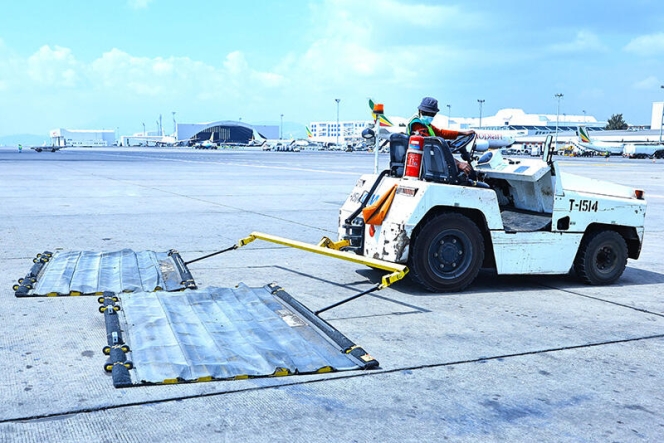
Bridgestone Corporation has initiated a novel co-creation programme in partnership with Ethiopian Airlines and Ethiopian Airports, focused on enhancing aviation safety at Addis Ababa Bole International Airport. This marks Bridgestone’s first sustained three-way collaboration with both an airline and an airport authority, targeting the reduction of Foreign Object Debris on runways and taxiways to support safer and more reliable aircraft operations.
The project was prompted by tyre-related incidents linked to debris at the airport, which previously risked disrupting flight schedules. Leveraging its specialised system for inspecting used airline tyres and analysing debris data, Bridgestone assessed conditions at the hub and proposed a tailored action plan. The company provided continuous support by analysing debris distribution patterns, developing visual hazard maps, advising on efficient collection methods and conducting training to raise awareness among airport personnel.
These sustained efforts have yielded significant results, substantially lowering the rate of tyre damage caused by runway debris compared to levels before the collaboration began. This reduction has supported improved on-time performance for Ethiopian Airlines while advancing overall operational safety. Additionally, the initiative has encouraged greater use of retreaded tyres, promoting economic efficiency and environmental sustainability within the airline’s operations.
Looking ahead, Bridgestone and Ethiopian Airlines Group plan to deepen their co-creation efforts, aiming to generate further value for the aviation sector and broader society through continued innovation and partnership.
Retta Melaku, Chief Operating Officer, Ethiopian Airlines, said, "At Ethiopian Airlines, the safety of our passengers, employees and aircraft is a priority. We are pleased to collaborate with Bridgestone to further strengthen our efforts in reducing FOD at Addis Ababa Bole International Airport and ensure safe operations at the hub airport."
Getaneh Adera, Managing Director, Ethiopian Airports, said, "We remain fully committed to upholding the highest safety standards at Bole International Airport at all times. This significant achievement in reducing FOD is the result of our strong commitment for safe operations and close collaboration with Bridgestone. Through our co-creation activities, we are pleased to have realised safer operations with enhanced productivity and economic value."
Jean-Philippe Minet, Managing Director, Bridgestone Aircraft Tire (Europe) S.A., said, "By combining the learnings and insights from Ethiopian Airlines' operational issues with our analysis technology and know-how, we have deepened our co-creation to propose customised solutions. We are delighted to contribute to safe aircraft operations with peace of mind and to improved operational productivity through the co-creation of efficient FOD reduction on airport surfaces. Through further expansion and evolution of this solution, we will amplify the value of our ‘Dan-Totsu Products’, trust with our customers and value of the data for creating new value."







Comments (0)
ADD COMMENT